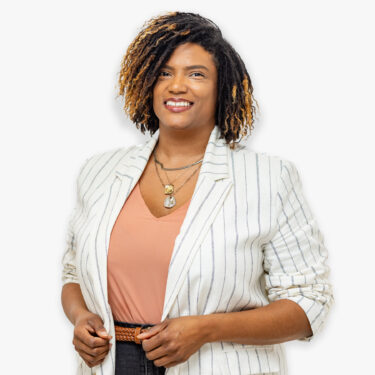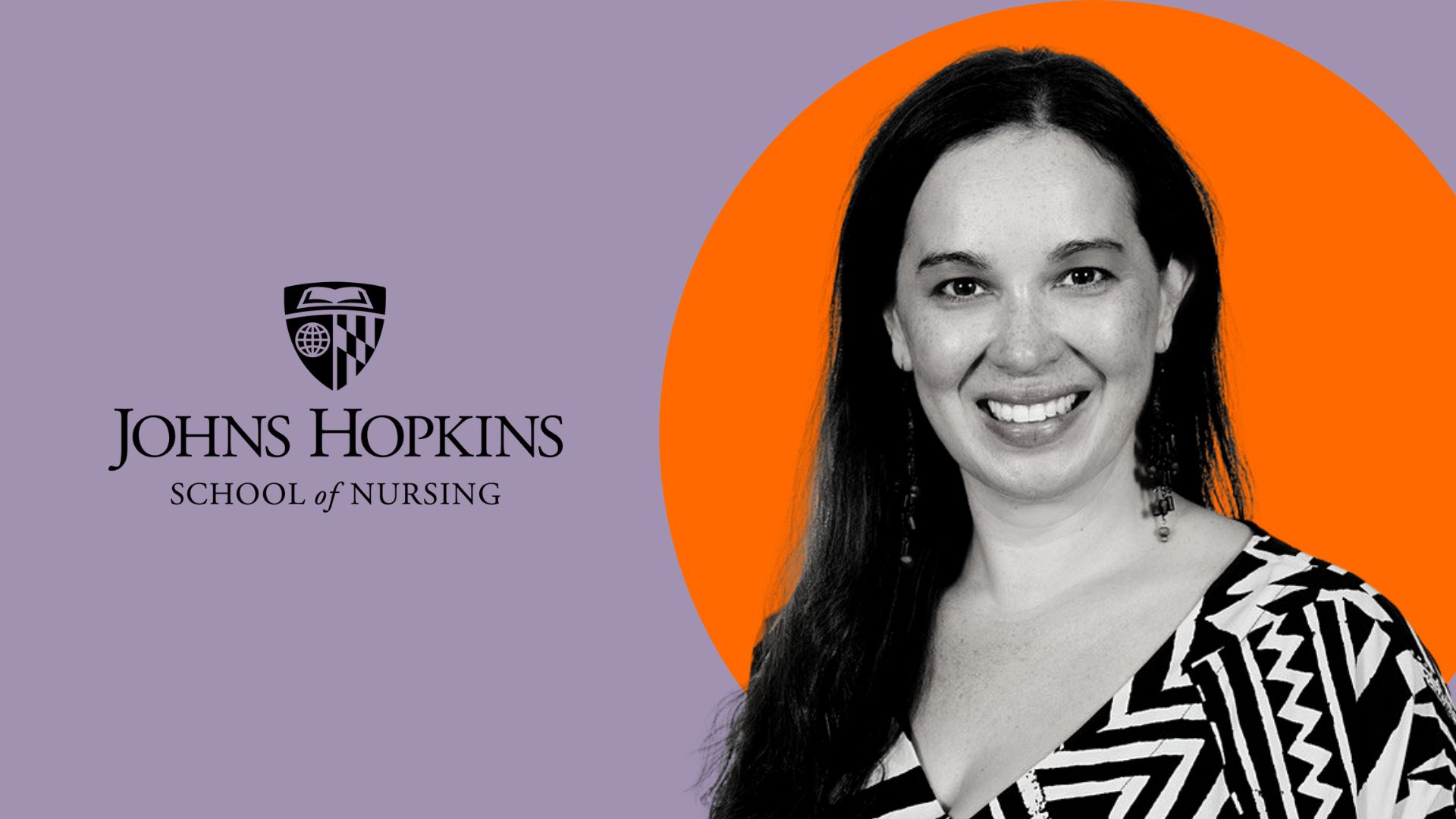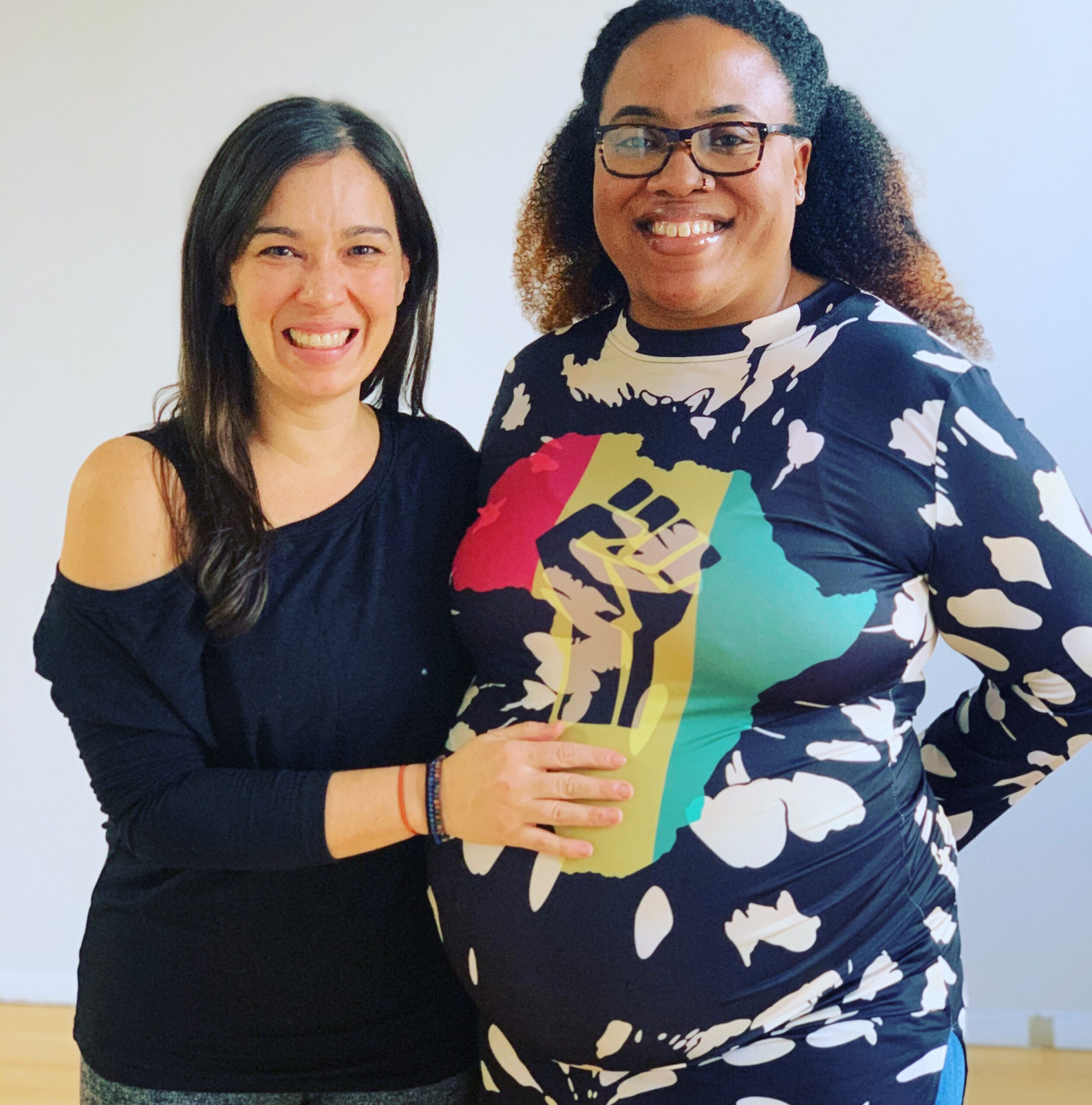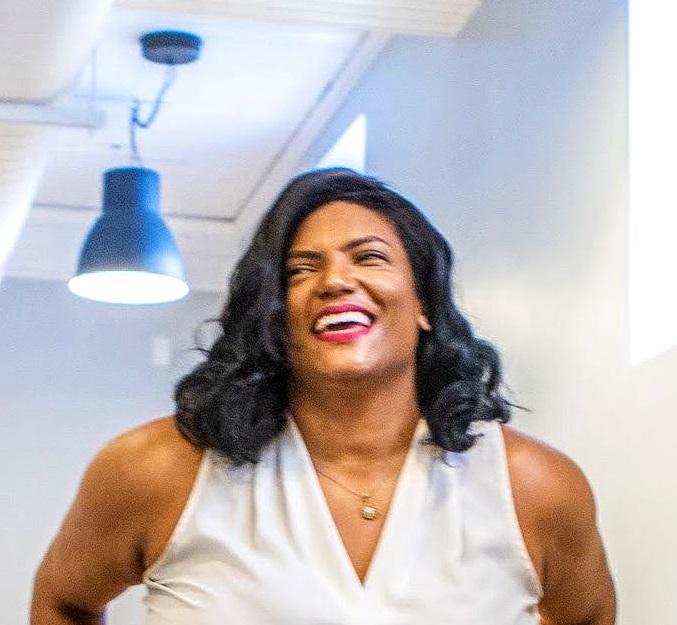Who were you before becoming a nurse? Now visualize how that influences who you become as a nurse.
Christina marea
Christina Marea is a nurse-midwife at Community of Hope in Washington, D.C., as well as a postdoctoral fellow and assistant professor at Georgetown University School of Nursing and Health Sciences. Her career has spanned work in birth centers, refugee camps, rural hospitals, and tertiary care hospitals; Dr. Marea has led research, clinical, and consulting collaborations in Guatemala, Jordan, Syria, Somalia, Kenya, Ethiopia, South Sudan and Uganda. She is also a PhD graduate of the Johns Hopkins School of Nursing.
The introduction is a question she asks her students. In a short Q&A, she talks about her journey to becoming a nurse midwife, and her work nursing in a community health clinic.
Tell me about your background.
I worked in international education before nursing, where I was the first managing director of Learning Enterprises, an NGO that works on international educational exchanges. From there I went on to the Peace Corps in Guyana where I served as a health volunteer, working closely with nurses and midwives doing reproductive health education. When I returned to the US I decided to train as a midwife, and dedicate my career to caring for people who have been systematically excluded from health systems, and support the nursing and midwifery work force in the US and globally.
I became a certified profession midwife (CPM), which is a direct entry midwife – meaning I was not a registered nurse or certified nurse midwife (CNM); CPMs provide prenatal, postpartum and birth care but cannot provide prescriptions, work in hospitals, or provide primary and preventative health services. I practiced for two years as a CPM on the US/ Mexico border in El Paso, Texas where I attended births in a birthing center in the community. Many of the people who came to birth with us wanted to stay out of the hospital because they felt discriminated against and often disrespected as non-English speakers. They also sought an environment that where interventions were the exception rather than the rule. Our clients sought a place that centered respect for the community, many of whom were undocumented, or would have a hard time paying the expensive hospital fees. Eventually I wanted to expand my practice to include more comprehensive care through the lifespan (for example prescribing contraception or doing pap smears).
From Texas I moved to the UK where I earned a master’s in conflict resolution and studied how health system recovering in Sierra Leone following the war addressed sexual violence. But missed direct patient care and went back to school for nurse midwifery at Yale University. While living in New Haven I continued focusing my clinical care and work on Latinx immigrant populations, including becoming the first nurse to serve as Director of the Haven Free Clinic – a clinic providing free health care to undocumented, predominantly Spanish speaking immigrants.
Upon graduating and passing boards as a Certified Nurse-Midwife, I moved to Washington, D.C.. Here I have worked caring for pregnant and incarcerated teens, in a private practice serving mainly government employers, and at a safety net hospital caring for predominantly immigrant people from Latin America and West Africa. I served as a volunteer with Doctors Without Borders in South Sudan as well. Following the closure of this safety net hospital, I joined the practice at Community of Hope as a per diem midwife. In the midst of all this, I completed by PhD at Johns Hopkins and had two kids. I’m currently a postdoctoral fellow and assistant professor at Georgetown University.
What is Community of Hope and what makes you most excited about it?
Community of Hope is a federally qualified health center offering intergenerational family care, as well as housing and homelessness assistance for D.C. residents. It is an exciting place to work for several reasons:
First, we offer truly comprehensive care across the perinatal spectrum, including mental health, ultrasound care, diaper support, safe sleep environments and more. Second, Community of Hope is regularly voted one of the best employers in D.C.; it is a very warm and respectful environment. They have also recently begun collaborating on some research initiatives! This is so important because community-based care and initiatives are critical to individual and community health, especially for those whose health is impacted by structural racism.
In 2018, a presidential task force charged groups like us to transform postpartum care, but there was no model to do so. Alongside our Director of Midwifery, Ebony Marcelle, at Community of Hope, we proposed a 12-month model of postpartum care. This summer we are starting the initiative to address structural inequity and racism that impacts our patients’ ability to thrive postpartum. Noelene Jeffers, another JHSON PhD graduate, and I, in collaboration with the D.C. government and Community of Hope, recently completed another research study that seeks to understand the experiences of unhoused people during pregnancy, including a rapid translation to policy change. We are working to discover how the city and health system can better meet the needs of pregnant people who experience homelessness and mitigate risks like preterm birth, low birth weight, hypertensive disorders and other complications of pregnancy.
What is your vision for the future of nursing?
Nursing and clinical practice is such a flexible career that you can move in and out of throughout your lifetime. As an exercise with my students, I ask them to describe who they were before becoming a nurse and visualize how that will influence their nursing career, and how it will bring a wider scope of knowledge to the nursing profession.
For me I started out as an educator, not a health care practitioner. Nearly 20 years later, I’m a full time educator training midwives. Support for the people who come next is central to my nursing and midwifery practice.



